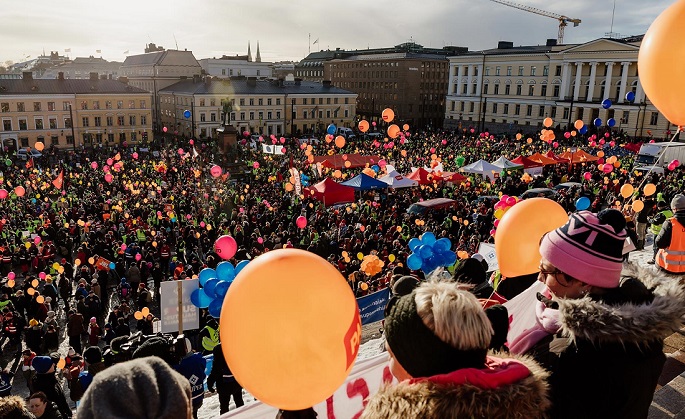Controversial law restricting right to strike enters into force on Saturday
Published : 17 May 2024, 00:53
Updated : 17 May 2024, 01:00
The controversial law restricting the right to strike, which was passed by the parliament on May 8 amidst strong protest by the trade unions, will enter into force on Saturday.
The Kansallinen Kokoomus (National Coalition Party-NCP) led right-wing four-party alliance government proposed the President to approve the amendments to the law at the presidential session on Friday, said the Ministry of Economic Affairs and Employment in a press release on Thursday.
The amendments would enter into force on Saturday.
According to the new law, compensatory fines for violating industrial peace will be increased, disproportionate solidarity action limited and the length of political strikes restricted.
The obligation to maintain industrial peace applies when a collective agreement is in force. If the industrial action is directed at one’s own collective agreement while the agreement is in force, the strike is unlawful.
The new law will raise the level of compensatory fines, setting the maximum amount at EUR 150,000 and the minimum amount at EUR 10,000.
Previously, compensatory fines have only been imposed on an association or employer that is party to a collective agreement and bound by the obligation of industrial peace. In future, an employee who continues a work stoppage which a court has found to be unlawful and who is aware of this judgment can be ordered to pay a compensation of EUR 200.
In future, the duration of political work stoppages will be limited to a maximum of 24 hours and other industrial action to a maximum of two weeks.


